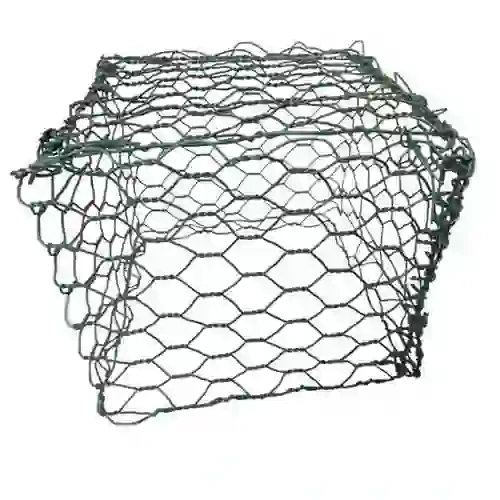-
 Phone:
Phone: -
 Email:
Email:

Steel Binding Wire for Construction and Industrial Applications
Understanding Steel Tie Wire Applications, Benefits, and Best Practices
Steel tie wire is an essential material in various construction and manufacturing processes. Its strength, durability, and flexibility make it a preferred choice for tying and securing various components in both industrial and domestic applications. This article delves into the qualities, applications, benefits, and best practices associated with steel tie wire.
What is Steel Tie Wire?
Steel tie wire is a thin, flexible wire made from steel, often used in construction and fabricating processes. It usually comes in coils and is available in different gauges, enabling adaptability to various project requirements. The wire is typically galvanized or coated with materials to resist rust and corrosion, enhancing its longevity and overall performance.
Applications of Steel Tie Wire
Steel tie wire finds extensive applications across multiple industries. Some common uses include
1. Construction One of the most prevalent uses of steel tie wire is in the construction industry, where it is utilized to secure rebar (reinforcing steel bars) in concrete structures. The wire is used to tie rebar together, ensuring structural integrity in buildings, bridges, and other infrastructure.
2. Fencing Steel tie wire is instrumental in securing fencing materials, whether for agricultural purposes, residential properties, or commercial spaces. It helps to maintain the stability of the fence and ensures that it withstands environmental elements.
3. Crafting and DIY Projects Hobbyists and crafters often use steel tie wire for various projects, such as making sculptures, wreaths, or other decorative items. Its flexibility allows for creative binds and shapes.
4. Electrical Applications In various electrical installations, steel tie wire can secure wiring and components, ensuring safety and organization within the system.
5. Packaging Steel tie wire is also used in packaging heavy materials, ensuring they do not shift or become damaged during transport.
Benefits of Steel Tie Wire
The advantages of steel tie wire are manifold, making it a go-to choice in many applications
- Strength and Durability Steel by nature offers high tensile strength. Steel tie wire can withstand significant loads without breaking, making it suitable for demanding construction and industrial applications.
steel tie wire

- Flexibility and Ease of Use Being relatively lightweight and flexible, steel tie wire can be easily manipulated, allowing users to twist, tie, and shape it as needed.
- Cost-Effectiveness Compared to other materials that can fulfill similar roles, steel tie wire is generally more affordable, making it an economical choice for many projects.
- Resistance to Corrosion Galvanized versions of steel tie wire offer resistance to rust, prolonging their lifespan and performance in diverse environmental conditions.
- Sustainability Steel is a recyclable material, which means that using steel tie wire aligns with environmentally friendly practices in construction and manufacturing.
Best Practices for Using Steel Tie Wire
While steel tie wire is relatively easy to use, following best practices can enhance its effectiveness and ensure safety
1. Choosing the Right Gauge Select the appropriate gauge based on the specific application. Thicker wire can bear more weight, while thinner wire may be sufficient for light-duty tasks.
2. Using Proper Tools Having the right tools, such as wire cutters and pliers, can make the job easier and yield better results.
3. Tying Techniques Familiarize yourself with various tying techniques to ensure secure and effective bonds. Proper knots can significantly improve stability and safety.
4. Regular Inspection In applications such as construction or fencing, regularly inspect the steel tie wire for wear and tear, particularly if exposed to harsh weather conditions.
5. Storage To prevent rust, store steel tie wire in a dry place, away from moisture and corrosive elements.
Conclusion
Steel tie wire is a multifaceted material that plays a vital role in numerous applications across many industries. Its unique combination of strength, flexibility, and cost-effectiveness makes it an indispensable tool for builders, artisans, and manufacturers alike. By understanding its benefits and employing best practices in its use, individuals can maximize the effectiveness of steel tie wire in their projects, ensuring both safety and durability. Whether securing reinforced structural elements or engaging in creative crafting, steel tie wire offers reliability and resilience, making it a cornerstone of modern construction and artistry.
-
Wire Mesh for Every Need: A Practical SolutionNewsJul.25,2025
-
Steel Fences: Durable, Secure, and Stylish OptionsNewsJul.25,2025
-
Roll Top Fencing: A Smart Solution for Safety and SecurityNewsJul.25,2025
-
Cattle Farm Fencing Solutions for Maximum SecurityNewsJul.25,2025
-
Affordable Iron Binding Wire SolutionsNewsJul.25,2025
-
Affordable Galvanized Wire SolutionsNewsJul.25,2025
-
Wire Hanger Recycling IdeasNewsJul.25,2025








